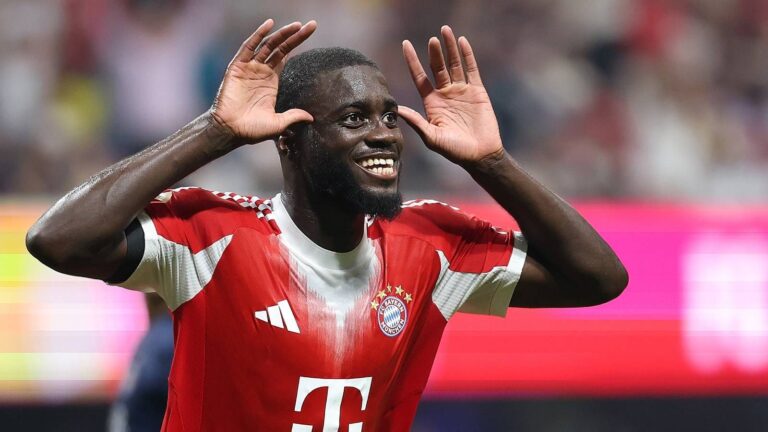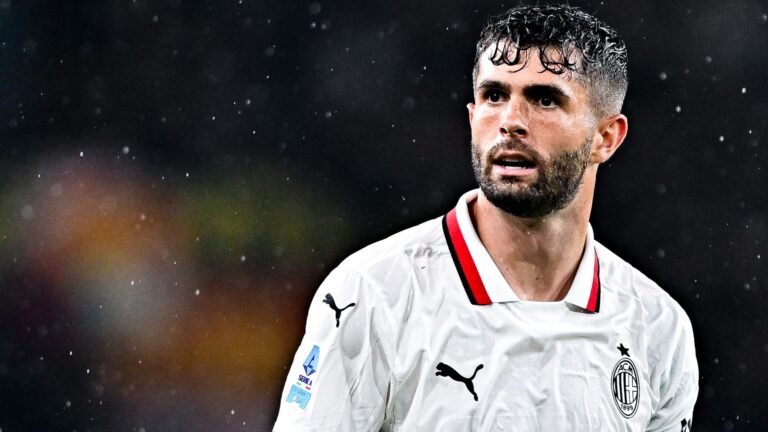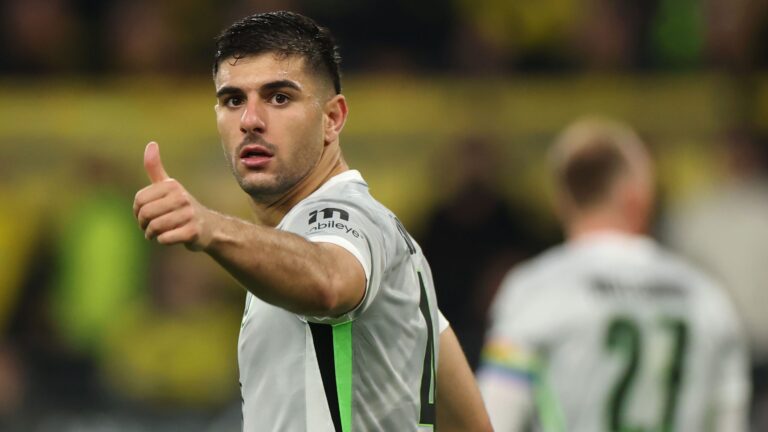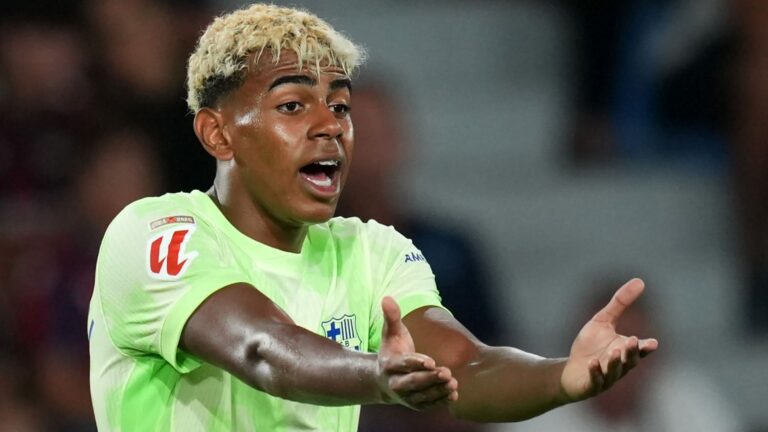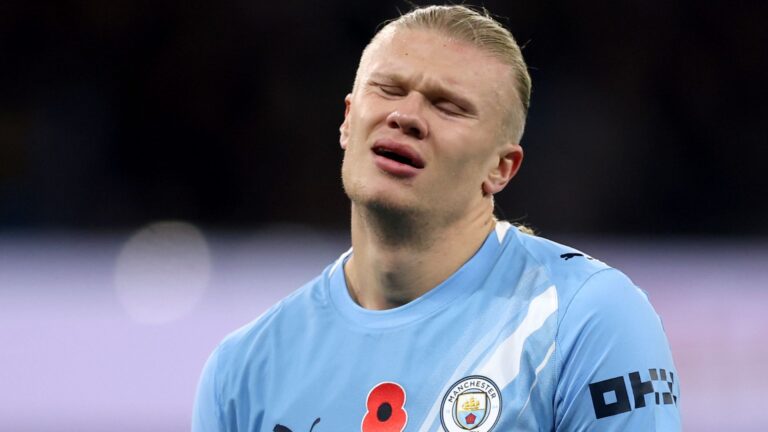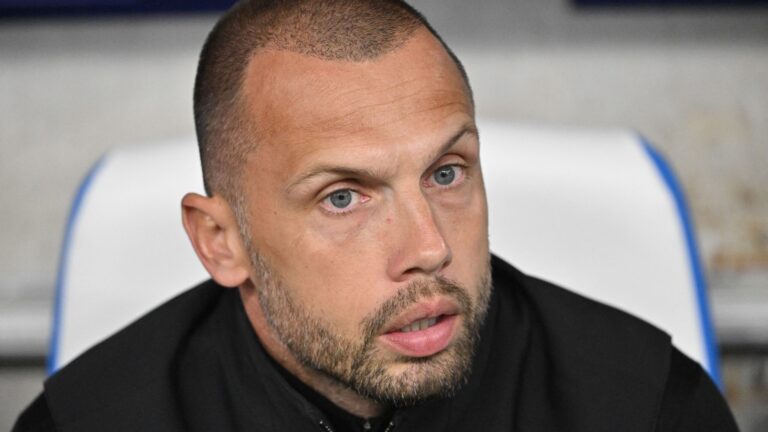The Shocking End to Real Madrid’s Pursuit of Ajax’s Prodigy
In the ever-competitive world of football transfers, promising deals can sometimes unravel in unexpected ways. Abdellah Ouazane, a highly touted young talent from Ajax, found his potential move to Real Madrid collapsing due to undisclosed medical concerns, leaving fans and experts alike pondering what went wrong.
- Abdellah Ouazane flew to Madrid to sign for Los Blancos
- Spanish club decides not to move ahead after his failed medical
- Player’s camp will look into alternative options
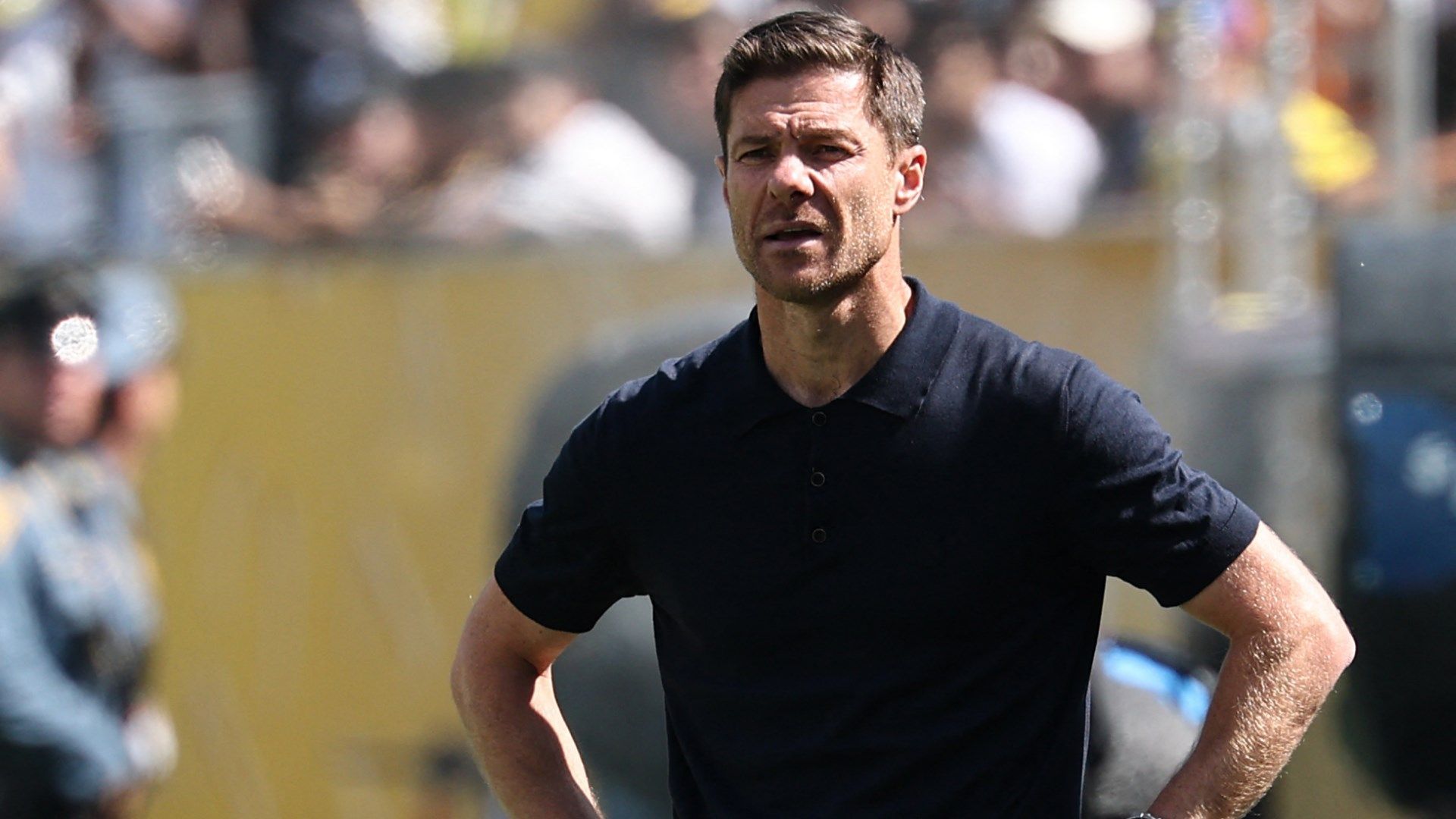
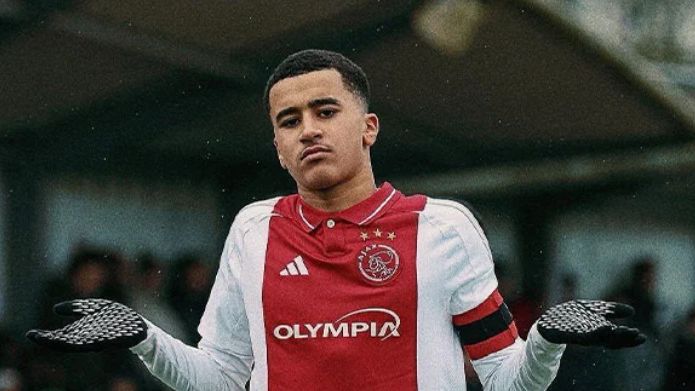
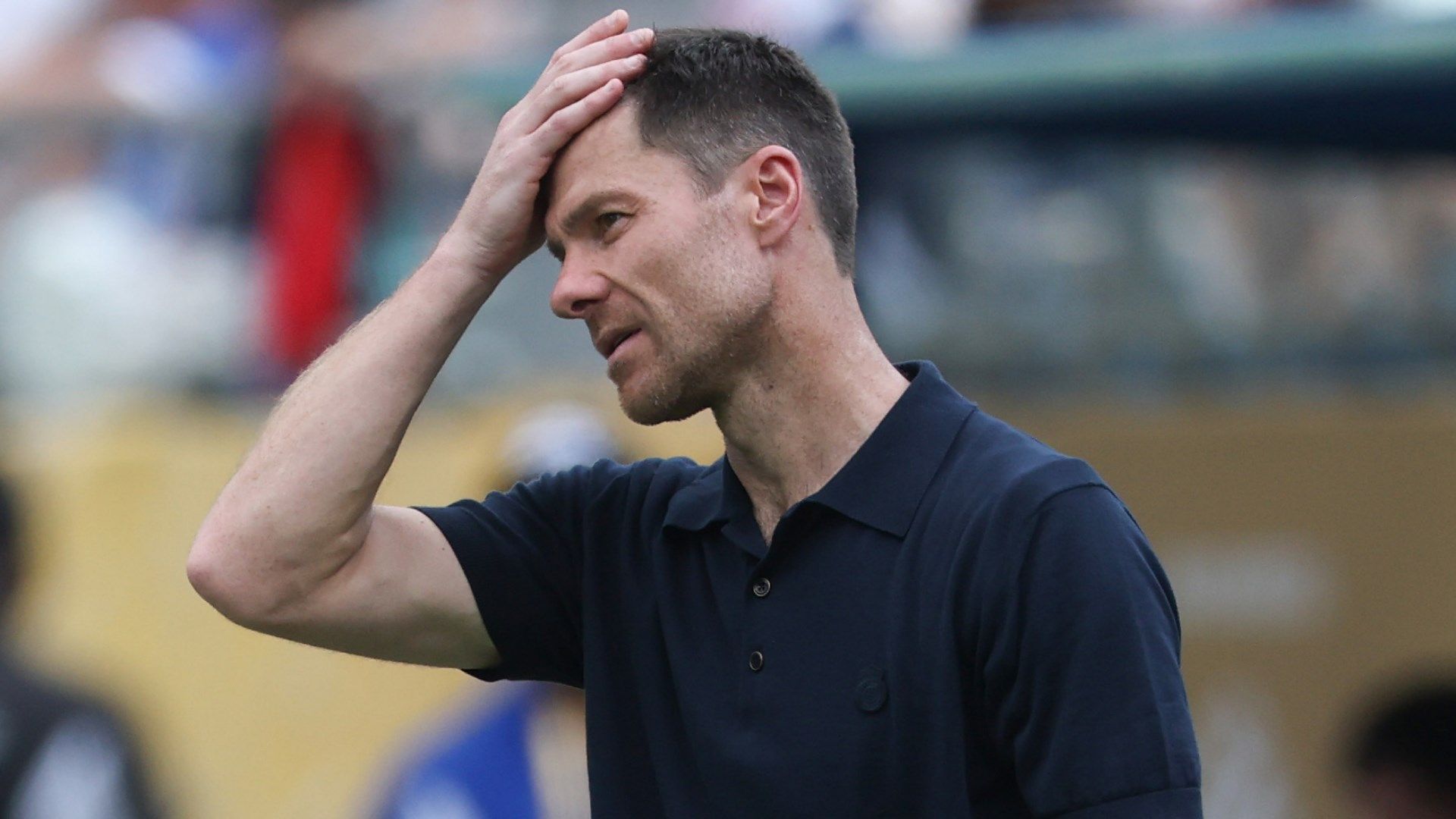
Abdellah Ouazane’s Rise as a European Sensation
Recognized widely as a standout emerging player across the continent, Abdellah Ouazane captured attention with his exceptional contributions for Morocco during the U17 African Cup of Nations. At only 16, he recently saw his agreement with Ajax expire, positioning him close to finalizing a transfer to the Spanish capital without a fee, though final assessments derailed the process. Reports from reliable outlets indicate that the team opted against proceeding once health evaluations raised red flags for the young Moroccan.
His Standout Performances and Achievements
Ouazane’s dynamic displays for Morocco in the U17 African Cup of Nations, where he netted multiple goals and set up key plays to secure the championship, drew significant notice from scouts. Earning the top individual honor at the event, this former Ajax standout also shone in the 2024-25 campaign with their youth squad, advancing to a higher age group. Even with this setback from Madrid, the skilled teenager maintains a variety of promising pathways ahead in his career.
Exploring Other Opportunities for the Young Star
Before Real Madrid entered negotiations, several elite clubs such as Paris Saint-Germain and Barcelona had already expressed keen interest in acquiring Ouazane. His representatives are fully attuned to the buzz around him and feel confident about pursuing different avenues if the Spanish side completely withdraws, ensuring his talents don’t go unnoticed.
Real Madrid’s Alternative Targets and Missed Chances
The club from the Spanish capital had also set their sights on Luis Navarro, a promising figure from Atletico Madrid’s youth setup. Navarro’s adaptable style and skillful playmaking abilities intrigued the team, leading to formal proposals. However, the 16-year-old opted to stay put and is now focused on a long-term commitment with his current club through 2028, highlighting the challenges clubs face in youth acquisitions.
The Background of the Transfer Bid
In the fast-paced world of football transfers, clubs like Real Madrid often make bold moves to secure young talents who could shape the future of their squads. One recent case that captured headlines involved Real Madrid’s attempt to sign a highly touted Ajax prodigy. This potential transfer highlighted the high stakes in football transfer news, where scouting top prospects from clubs like Ajax can lead to significant team improvements, but also comes with risks like failed medical examinations.
Who is the Ajax Prodigy?
Ajax has long been a breeding ground for emerging football talents, producing stars who go on to dominate European football. The player in question was a 19-year-old midfielder, known for his exceptional vision, dribbling skills, and ability to control the midfield-traits that make him a prime target in any big transfer window. Scouts from top clubs, including Real Madrid, had been monitoring him for months, praising his potential to become a key player in La Liga or the Champions League.
This Ajax prodigy had already made waves in the Eredivisie, with standout performances that drew comparisons to past Ajax greats. His youth development under Ajax’s renowned academy system, which focuses on technical prowess and tactical intelligence, made him an attractive option for clubs looking to bolster their midfield options with young, cost-effective signings.
Real Madrid’s Interest in the Transfer
Real Madrid, as one of the giants in European football, frequently pursues Ajax talents as part of their strategy to maintain dominance in La Liga and beyond. Their interest in this prodigy stemmed from a need to refresh their midfield lineup, especially after a series of injuries to key players. Transfer experts noted that Real Madrid’s scouting team had been impressed by the player’s stats, including his high pass accuracy and goal contributions in crucial matches.
Negotiations reportedly involved a substantial transfer fee, rumored to be around €50 million, which would have been a bargain for a player with such potential. Real Madrid’s president and coaching staff saw this as an opportunity to add depth to their squad for upcoming Champions League campaigns, making it a hot topic in football transfer updates.
Ajax’s Stance on the Deal
On the other side, Ajax was protective of their young star, viewing him as a cornerstone of their future success in the Eredivisie. The Dutch club has a history of negotiating tough deals to retain or maximize value from their academy graduates, often using failed transfers as leverage for better terms. Sources indicated that Ajax initially agreed to the sale, seeing it as a way to fund their own squad rebuild, but they remained cautious about the medical aspect, knowing that player health can make or break a transfer.
The Medical Examination Process
Medical examinations are a critical step in any football transfer, ensuring that players are fit for the physical demands of top-tier competition. In this case, the Ajax prodigy underwent a thorough assessment at Real Madrid’s facilities, which included scans, fitness tests, and consultations with medical experts.
What Happened During the Medical?
During the examination, concerns arose about an old knee injury that the player had previously managed. Real Madrid’s medical team discovered potential issues that could lead to long-term problems, such as instability or the need for surgery. This revelation turned what was supposed to be a routine check into a major hurdle, ultimately leading to the deal’s collapse. Football transfer news outlets reported that the player’s representatives tried to downplay the findings, but Real Madrid prioritized long-term player health over the immediate excitement of the signing.
Common Reasons for Failed Medicals in Football Transfers
Failed medical examinations in high-profile transfers aren’t uncommon and can stem from various factors. Here are some key reasons based on typical scenarios in the sport:
- Pre-existing injuries: Like in this case, undiagnosed or recurring issues can surface during detailed scans.
- Fitness discrepancies: Players might not meet the specific physical benchmarks required by clubs in more demanding leagues.
- Hidden health risks: Conditions such as heart irregularities or joint wear can be flagged, affecting a player’s longevity.
- Psychological factors: Mental health evaluations sometimes reveal unreadiness for the pressure of a big move.
- Testing standards: Different clubs have varying protocols, which might lead to discrepancies in results.
These elements underscore why medical checks are non-negotiable in football transfer deals, often serving as the final gatekeeper.
Impact on the Player and Clubs Involved
The fallout from this failed transfer had ripple effects across the football world.
For the Player
The Ajax prodigy now faces uncertainty about his career path. While he’s likely to stay with Ajax for the immediate future, this episode could affect his market value:
- Potential delay in moving to a bigger club, impacting his development and exposure.
- Opportunity to focus on rehabilitation and prove his fitness in upcoming Eredivisie matches.
- Increased scrutiny from scouts, which might lead to renewed interest from other teams like Barcelona or Premier League sides.
For Real Madrid
Real Madrid’s transfer strategy took a hit, forcing them to pivot quickly:
- They may need to explore alternative targets, such as other Ajax prospects or players from La Liga rivals.
- This could strain their budget, as the allocated funds might now go toward emergency signings.
- Lessons learned could improve their medical evaluation processes for future football transfer bids.
For Ajax
Ajax might benefit in the long run by retaining a key asset:
- The club can continue nurturing the player, potentially increasing his value for a future deal.
- It reinforces Ajax’s reputation for developing resilient talents, attracting more young prospects to their academy.
Lessons from the Failed Transfer
Transfers like this serve as valuable case studies for fans and clubs alike. Key takeaways include the importance of thorough pre-transfer health assessments and the unpredictability of football transfer markets. By understanding these dynamics, teams can better navigate the complexities of signing top talents while minimizing risks.


